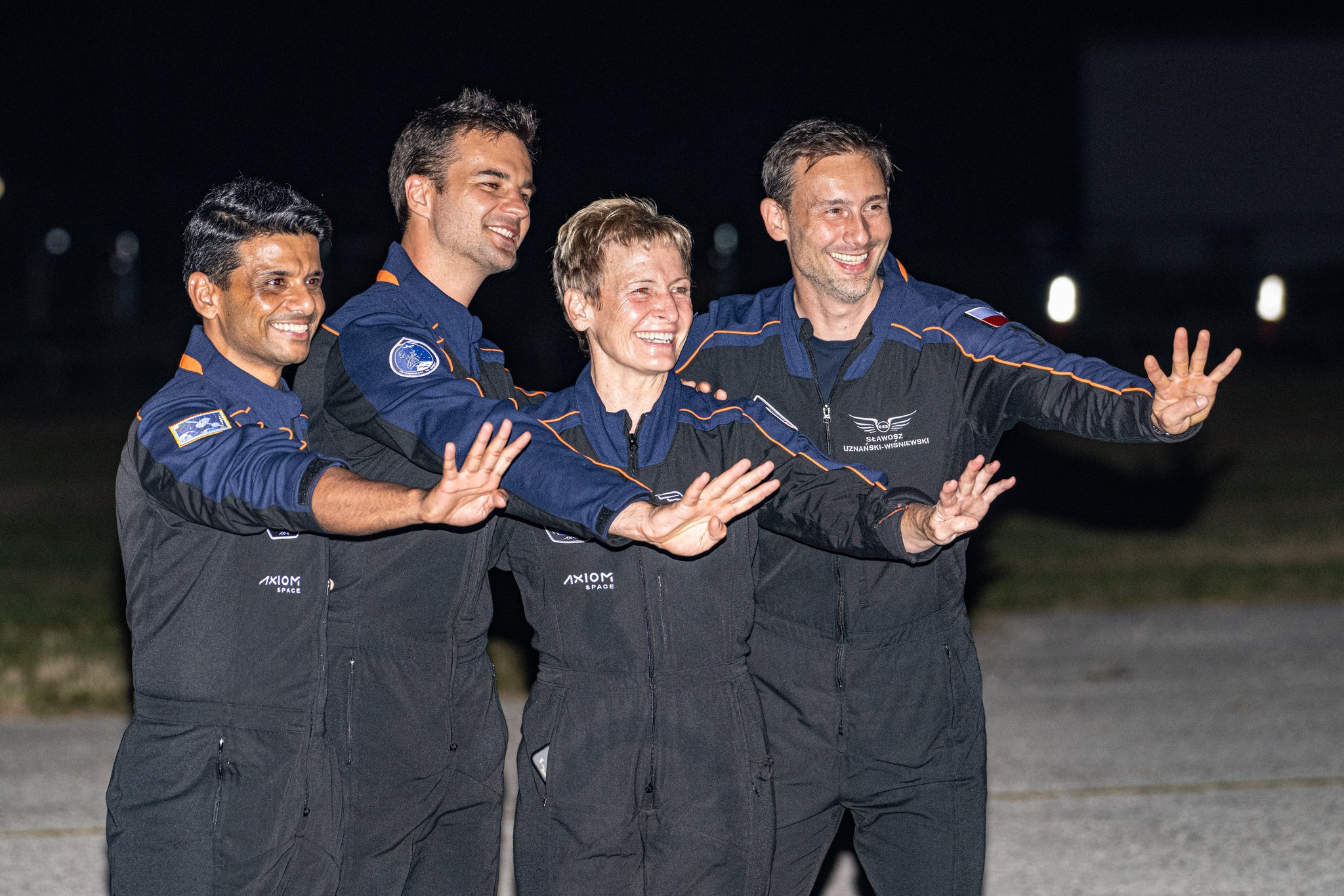Axiom Mission 4 (Ax-4) was the fourth private astronaut mission launched by Axiom Space to the International Space Station (ISS), in collaboration with NASA and SpaceX.
To expand commercial activities and develop commercial space stations in low Earth orbit also To support scientific experiments in microgravity in various fields.
The Scientific research has wide spectrum like;
- To support experiments in microgravity across various fields, such as human health, materials science, and Earth observation.
- To deepen the understanding of how the space environment impacts biological processes and human physiology.
- To investigate applications relevant to future space missions, like life support systems, radiation protection, and space farming.

What research the axiom 4 conducted in space?
The Axiom Mission 4 (Ax-4) crew conducted a wide range of experiments on the International Space Station (ISS), focusing primarily on biology, human physiology, and the effects of microgravity.
The mission included around 60 experiments and activities representing 31 countries.
Here are some of the key research areas and experiments:
- Biology and life sciences
- Tardigrade study: Researched the survival, revival, reproduction, and genetic responses of the Indian strain of Tardigrades, known for their resilience to extreme conditions, including space environment.
- Myogenesis: Investigated how the space environment affects muscle tissue development and potential treatments for muscle loss in space.
- Cyanobacteria and microalgae: Studied the growth and properties of these organisms in microgravity for their potential use in bioregenerative life support systems for oxygen production and nutrient provision
- Human physiology and health
- Muscle and bone degradation: Conducted studies on the effects of space travel on bone health and muscle mass loss, as well as strategies to prevent these effects.
- Spaceflight-Associated Neuro-ocular Syndrome (SANS): Tested a new drug formula for treating vision impairment caused by long periods in space.
- Mental health: Participated in studies to monitor the mental and behavioral health of astronauts during space missions.
- Cerebral hemodynamics: Investigated blood circulation in the brain using ultrasound to understand cardiovascular adaptation to spaceflight.
- Neurofeedback: Evaluated the effectiveness of neurofeedback sessions in reducing stress and enhancing performance in astronauts, according to Axiom-4.
- Microbiome profiling: Monitored changes in astronauts' gut, urine, and oral microbiomes to understand the impact of space conditions on human microbiomes.
- Technology and materials science
- Crop seeds: Investigated the effects of microgravity on the germination and growth of food crop seeds, aiming to develop sustainable food sources for long-duration missions.
- Electronic displays: Tested the cognitive effects of using computer screens in zero gravity (Voyager Display) to inform the design of future spacecraft interfaces.
- Radiation dosimeter: Tested a new, miniaturized radiation dosimeter to monitor crew radiation exposure.
- 3D printing: Explored the impact of spaceflight on the properties of 3D printed polymers for potential use in space manufacturing.
- Microfluidics design: Studied the behavior of liquids in microfluidic devices for potential use in drug analysis and testing in space.
- Educational and outreach activities
- Student experiments: Supported experiments designed by students in Brazil and Nigeria to investigate the collision of balls of differing mass and the properties of pendulums in microgravity.
- Educational demonstrations: Conducted experiments to demonstrate the laws of physics in space versus on Earth.
- Public outreach: Engaged with students and the public through radio communication and other initiatives to raise awareness of space exploration.
The Ax-4 mission contributed to ongoing research on the ISS and provided valuable insights for future space missions, including India's Gaganyaan program and the development of commercial space stations.
The four-person crew included Commander Peggy Whitson (Axiom Space), Pilot Shubhanshu Shukla (ISRO), and Mission Specialists Sławosz Uznański-Wiśniewski (European Space Agency/Polish Space Agency) and Tibor Kapu (Hungarian Space Office).
Future research based on Ax-4 findings may lead to advancements in areas such as cancer treatment, bone health, and sustainable food production in space. As the International Space Station (ISS) nears its retirement, Axiom Space and other commercial providers are vying to create the next generation of commercial space stations. Ax-4 highlights a growing trend of commercialization in space, with private companies playing an increasingly central role in human spaceflight and space infrastructure development.
In essence, while Axiom Mission 4 itself has concluded, its impact will continue to be felt as Axiom Space progresses towards its commercial space station goals, participating nations leverage the mission's findings for their own programs, and the broader space industry adapts to the changing landscape of space exploration.

No comments:
Post a Comment